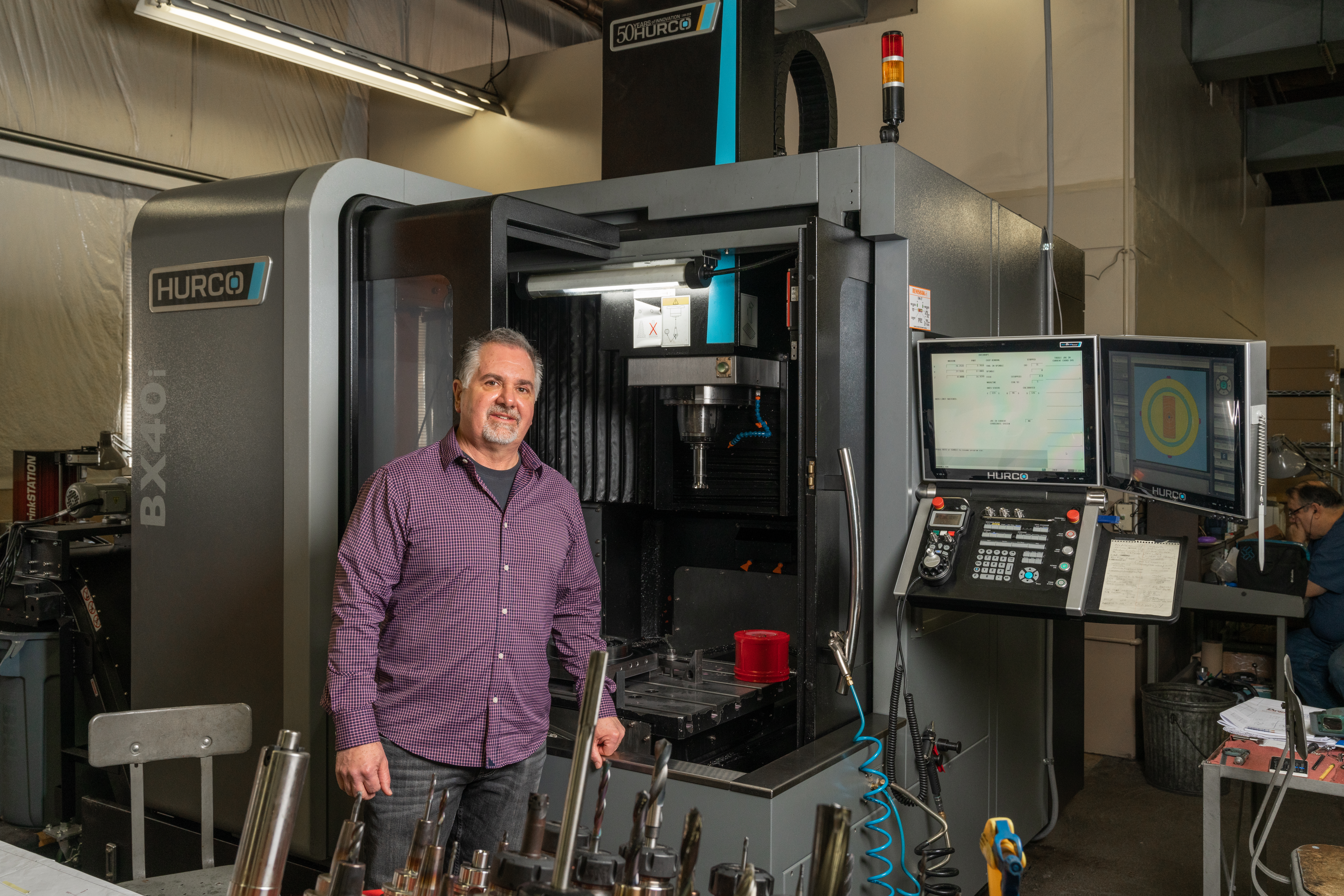Michiana Global Mold Leverages a Manufacturing Readiness Grant to Deploy Next-generation Vertical Machining Center with Advanced Sensors
Michiana Global Mold, LLC
Case Study
Key Stats
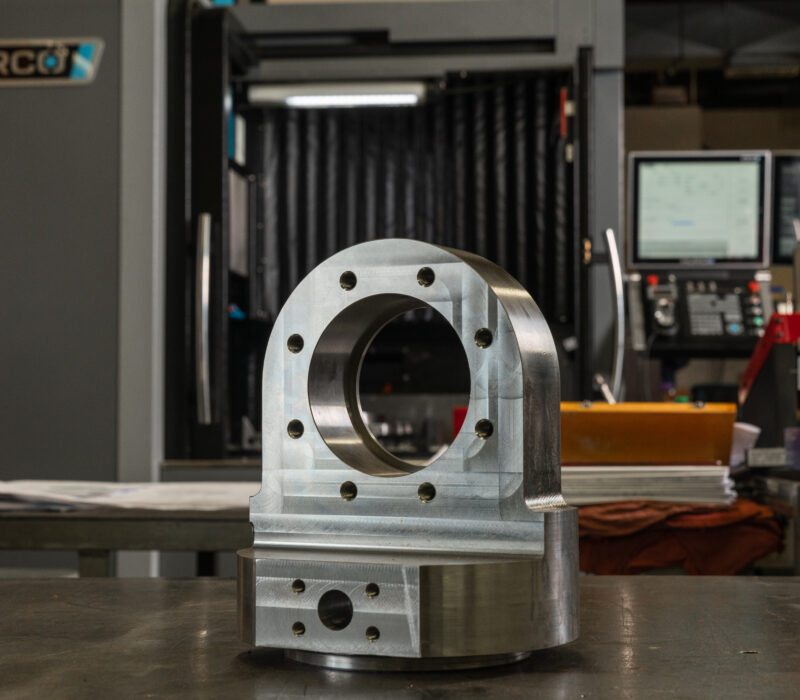
Company History
Founded in Mishawaka, Indiana, in 1964 as Michiana Plastics, the company has transitioned to serve industries throughout North America with concept-to-completion molds and tooling that support the plastic and rubber manufacturing industries.
Eric Karaman, now President and Chief Operating Officer of the enterprise, and his partner, Dave Razzano, acquired Global Mold Solutions and Michiana Plastics in 2014, and merged the two entities into Michiana Global Mold, LLC. In 2018 Karaman and Razzano partnered with Mno-Bmadsen, the investment arm of the Pottawatomie Indian Tribe. “The Pottawatomie are a forward-thinking tribe,” Eric explained. “They set aside some amount of revenue from their casinos and other operations to invest in new business opportunities in pursuit of their 7-Genration philosophy. Now all companies, including Michiana Global Mold are managed through the Mno-DREK portfolio. Michiana Global Mold designs and manufactures complex molds with its in-house tool designers and engineers, and also offers limited production and assembly for its plastic injection molding customers.
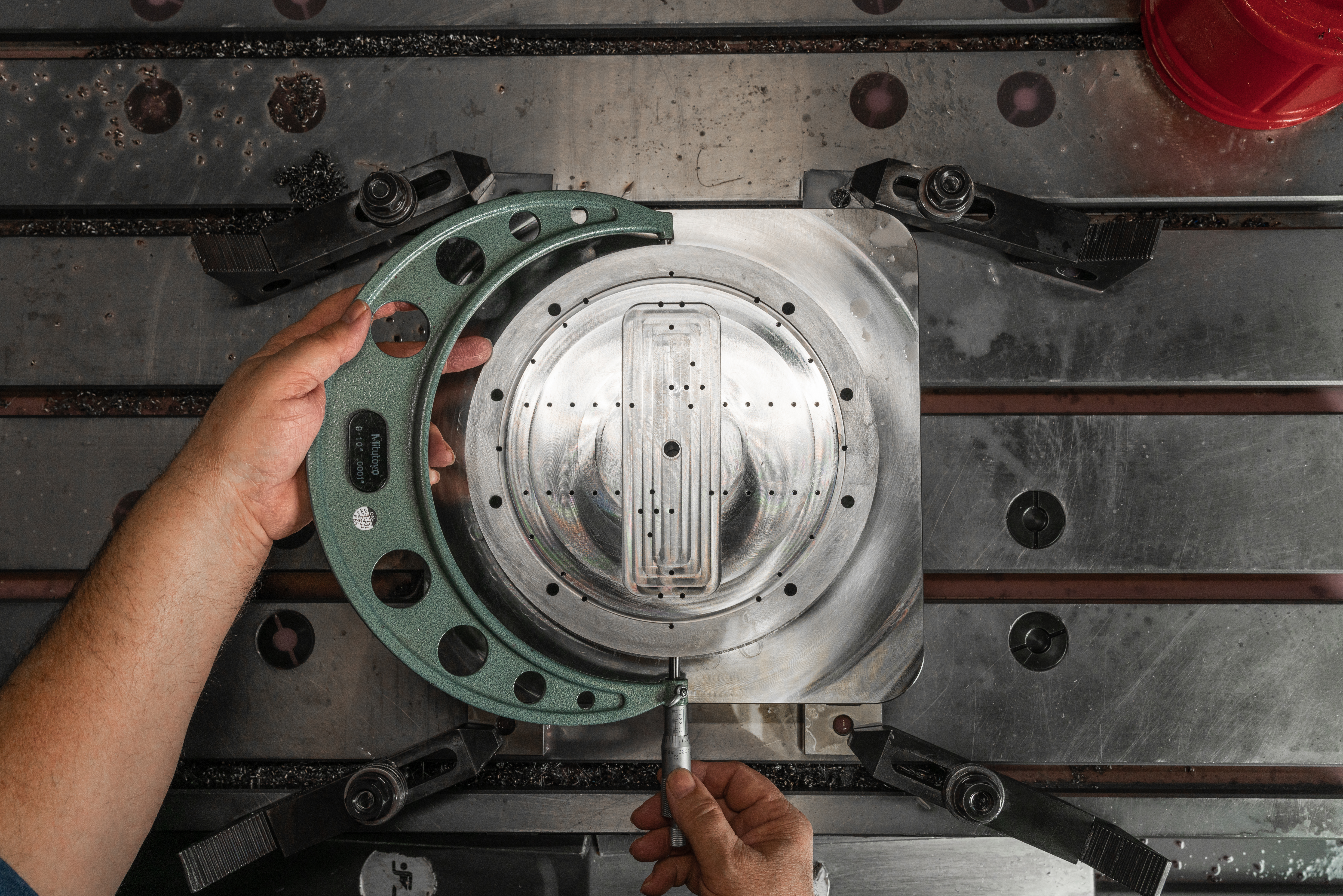
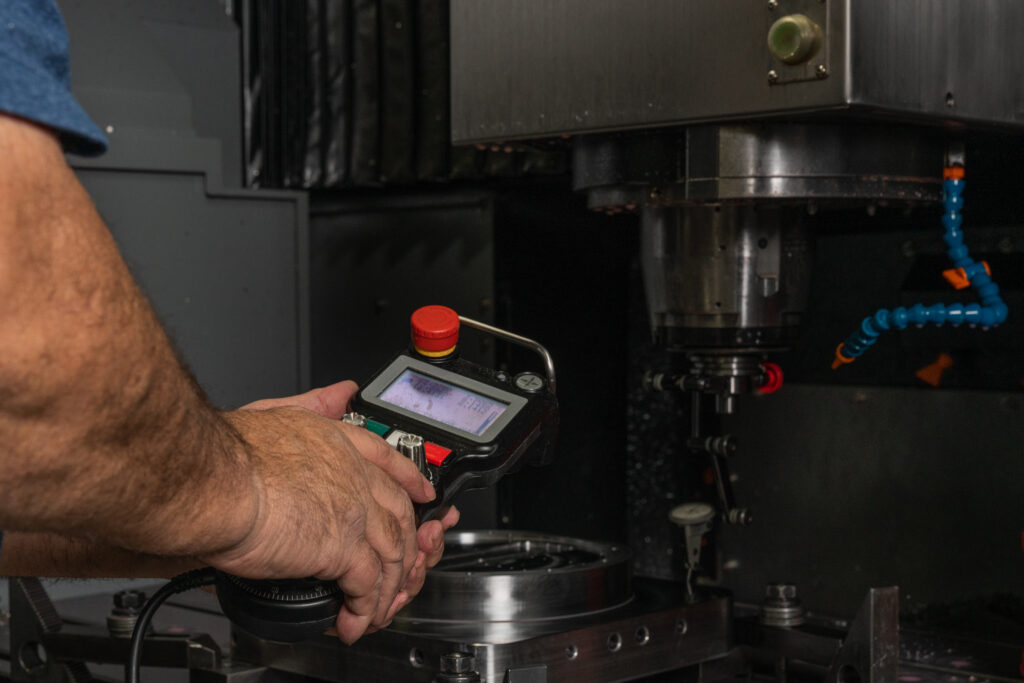
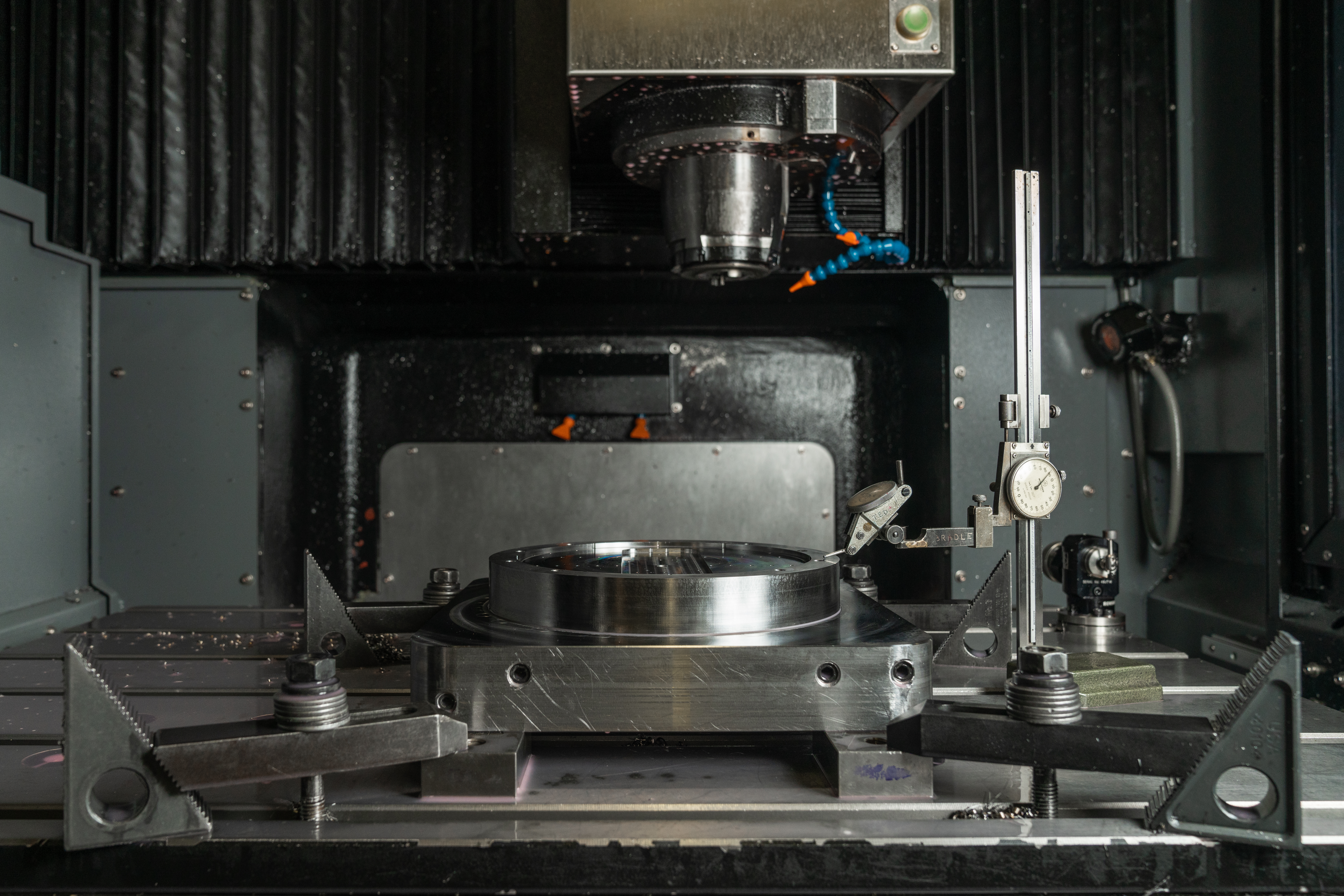
Today, Michiana Global Mold serves companies in the automotive, aerospace, defense and consumer products industries. “About 80% of all the plastic injection molds that are produced in the U.S. support the automotive industry,” Eric said. “That’s the 800-pound gorilla in the plastic injection arena. A lot of us cater to the automotive industry either exclusively or predominantly.” What sets Michiana apart from its competitors, is its full-service mold making capabilities, starting with engineering and design through to production and assembly. “Our engineers are all not only mold makers by trade, but they also have a tremendous amount of experience in the plastic injection molding process,” he said. “They’re able to conceptualize and create these complex and intricate molds with an eye toward injection efficiency.”
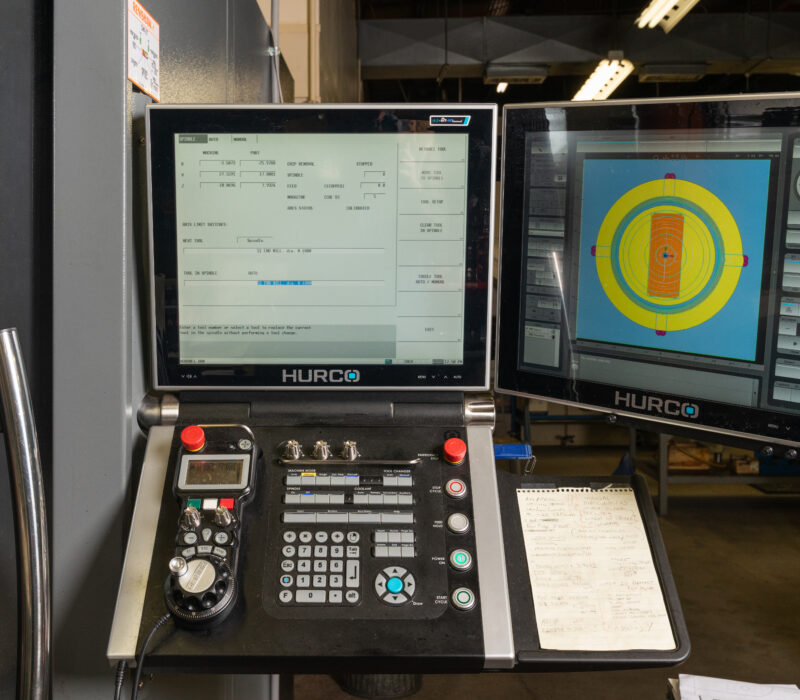
The Project
Michiana Global Mold leveraged a Manufacturing Readiness Grant to deploy a next-generation vertical machining center with advanced sensors for part measuring and quality checks.
Deployment of the vertical machining center allowed Michiana to increase its efficiency and enhance competitiveness. Eric said, “Not only is the equipment capable of cutting parts to much tighter tolerances, but it does so with much higher speeds and on a larger scale. With the technology innovations in the new machining center, we can increase our manufacturing capacity significantly, becoming at least 40% more efficient.” Eric continued to explain that, with the addition of the advanced sensors and a Renishaw Probe, there are measuring capabilities within the machine that enable parts to be measured and quality checked without taking them to a different location in the facility and relying on a traditional CMM (computer measurement machine).
Eric explained that the next step in Michiana’s Industry 4.0 journey will be the procurement of a new electrical discharge machine (EDM machine). “That’s the next piece of equipment we would like to buy for this operation,” he said, also adding that the purchase would include advanced robotics and automatic feeding capabilities so it can run lights out (24/7).
Manufacturing Readiness Grants provided by the Indiana Economic Development Corporation and administered by Conexus Indiana are available to Indiana manufacturers willing to make capital investments to integrate smart technologies and processes that improve capacity and productivity. Michiana Global Mold invested its $145,000 grant in technology that put the company on schedule to integrate Industry 4.0 technology with the support of its workforce.
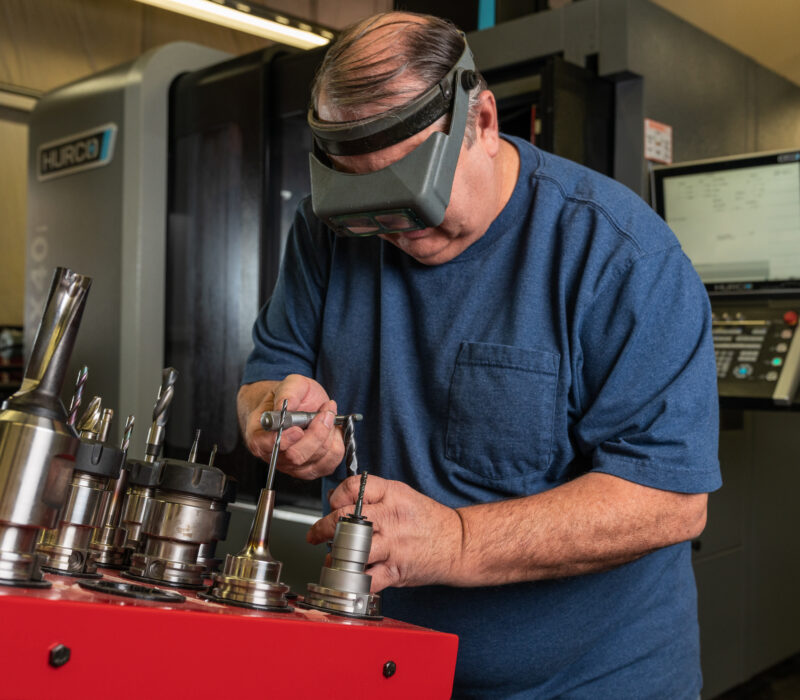
Key Learnings
Industry 4.0 investments aren’t eliminating jobs but requiring digital workforce skills.
“The labor pool of tool makers and mold makers is shrinking every year and being replaced at a slower rate with younger workers who have digital skills and abilities to run computers and high-tech equipment. We’re seeing an evolution from a more traditional skill set to a digital skill set, not an elimination of the number of jobs. The more automation and new machinery we bring in, the more our workers need digital and technical skills,” Eric pointed out. “That doesn’t mean more experienced workers can’t learn those digital skills, but they do need to have an attitude that embraces change because the automated equipment can make their jobs easier,” he said. “Largely, we’re finding that our experienced workers and younger workers are partnering together and sharing knowledge to help each other manufacture molds and program the new equipment. It’s a nice complement,” Eric continued.
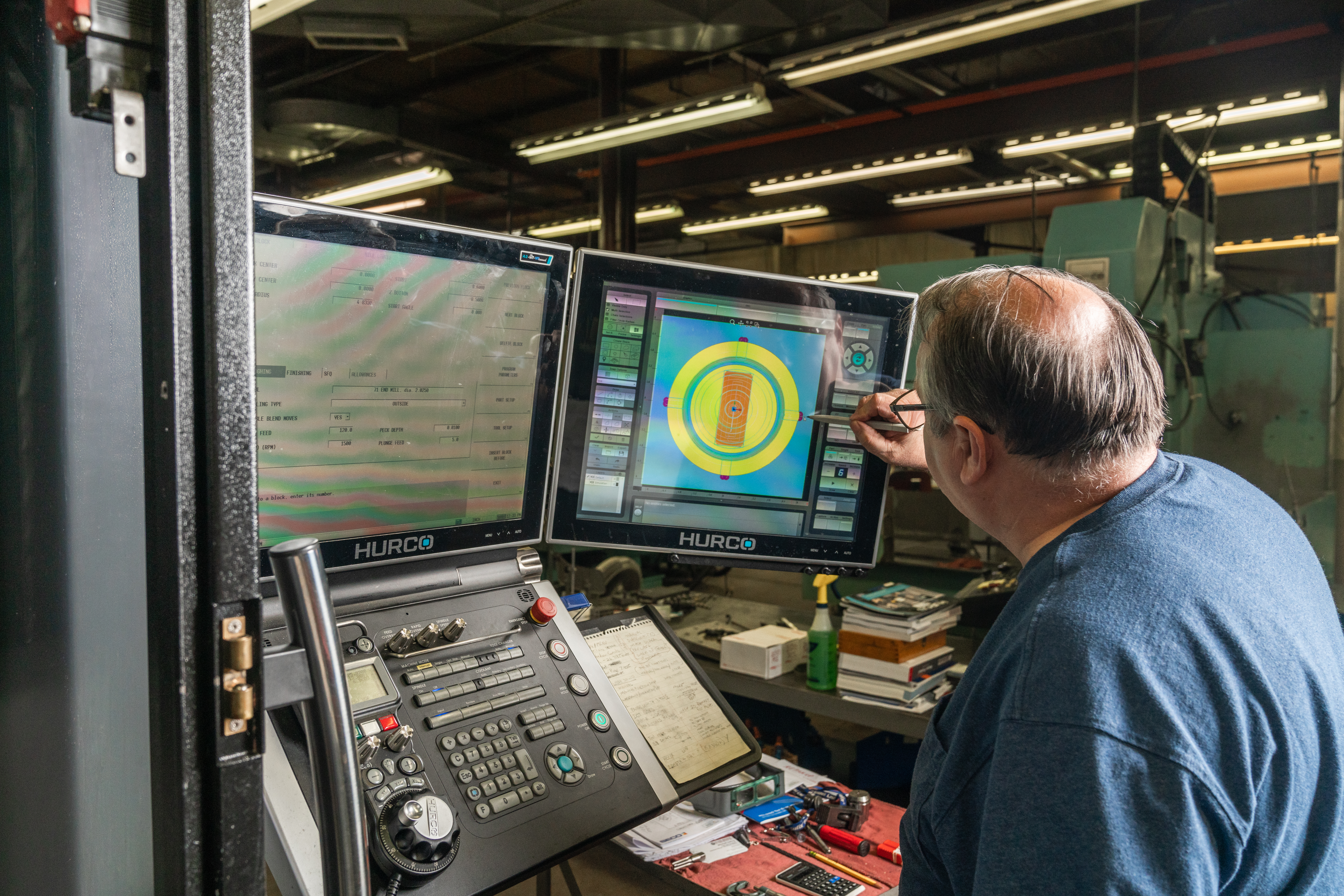
The importance of the MRG program cannot be overlooked, Eric believes. “We look back on it and feel very lucky for receiving the grant. It turned out very well–the program came at the right time and allowed us to continue our automation efforts to become more efficient. It was a tremendous support mechanism for us and made our decision to invest in the technology that much easier.”
On-the-job training is often needed to execute an Industry 4.0 project: Michiana’s partnership with NTMA is a valuable part of that equation.
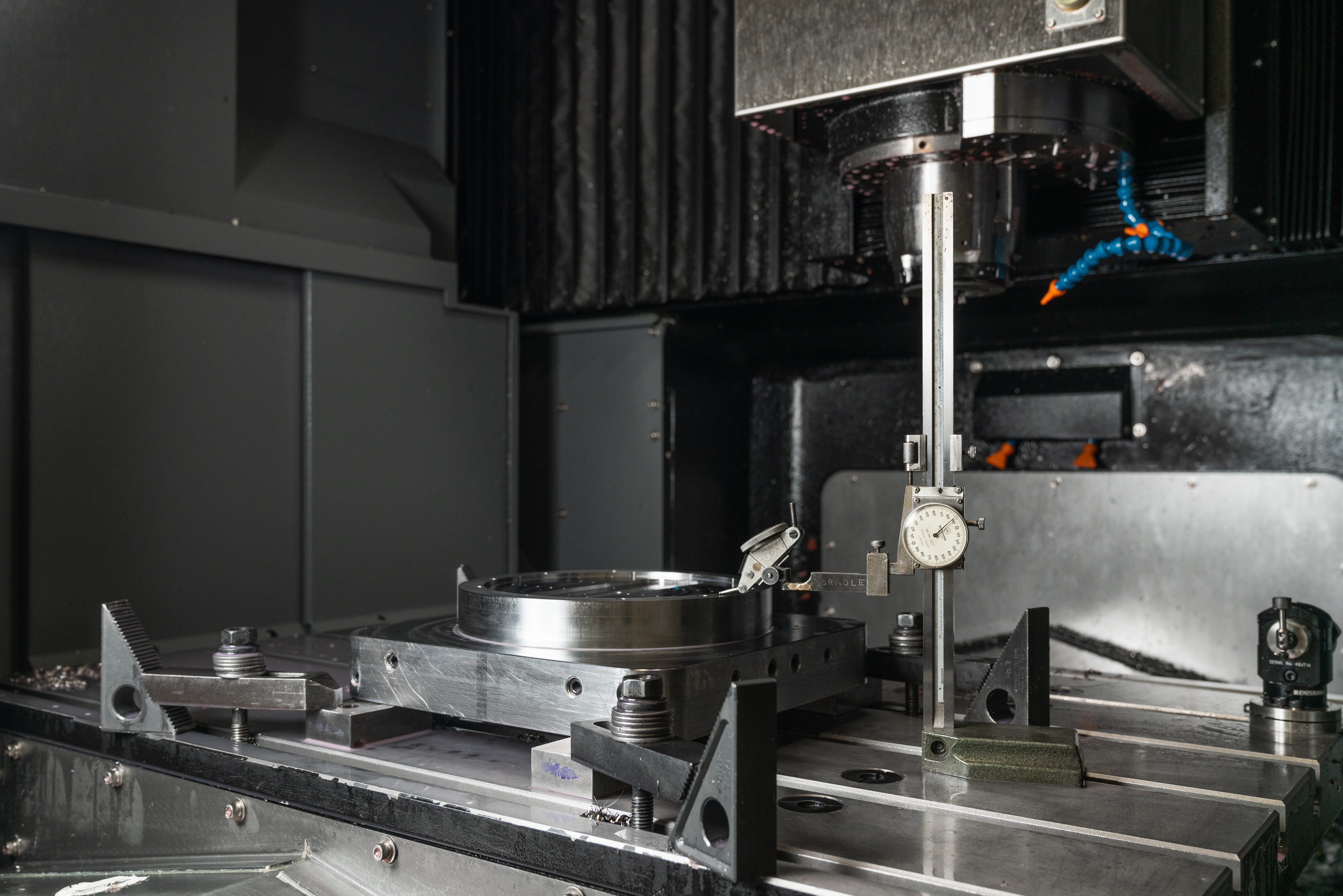
On-the-job training is where our young professionals can develop skills that can’t be learned in a classroom, Eric said. “There are just certain pieces about making a functional mold that you’re not going to be able to just magically program into a machine,” he acknowledged. “You need to understand and have an intuitive feel for the design and functionality of it. On-the-job training really focuses heavily on that piece.” Eric also emphasized that as Michiana adds more machines and automation capabilities, its workforce actually needs to increase–unfortunately, the supply of skilled labor is shrinking. “I told our machinery salesperson a few days ago, ‘I’ll buy that machine if you give me two or three people to run it,’” Eric said, with a laugh.
The NTMA (National Tooling & Machining Association) has been a valuable asset in teaching digital and technical skills to the Michiana workforce. The company relies heavily on NTMA’s educational opportunities for its workforce, along with mentoring from seasoned employees. Called NTMA University, the program can provide classroom training leading to official credentials. “You have to have the requisite amount of classroom training,” Eric said, “some of the local trade schools can provide that as well. We chose to partner with NTMA to provide that for our workforce, and to ensure all aspects of a traditional apprenticeship are maintained.”
“Not only is the equipment capable of cutting parts to much tighter tolerances, but it does so with much higher speeds and on a larger scale … We could increase our manufacturing capacity significantly and become at least 40% more efficient.”
Eric Karaman
President & COO at Michiana Global Mold
